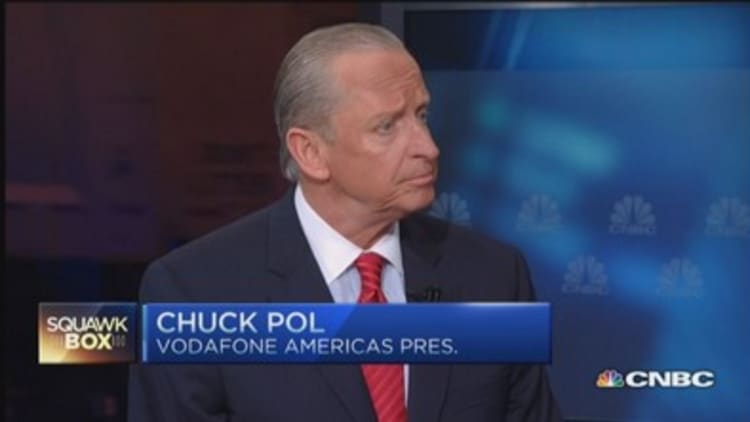
Hoping to encourage new moms to stay after they come back to work was foremost behind the new global maternity leave policy announced by Vodafone earlier this month, a company executive told CNBC on Monday.
Chuck Pol, president for the Americas at the mobile communications giant, said in a "Squawk Box" interview that Vodafone's 35,000 women around world will get at least 16 weeks of fully paid maternity leave, regardless of statutory minimums, which in the United States is zero weeks. Under the Vodafone policy, women returning to work after having a baby also will get full pay for a 30-hour week for six months.
Read More Vodafone launches new policy for working moms
"For those women that go back to work after maternity leave and that leave Vodafone, 65 percent of those women leave within the first year," said Pol, who hopes the new policy will boost retention rates and lead to more women in high-profile positions. "Only 21 percent of ... women are senior leaders" at the company, he added.
Pol acknowledged short-term costs of Vodafone's maternity leave change, but said they would yield medium-term benefits. While he could not provide specific numbers, Pol did point to a KPMG study, commissioned by Vodafone, which argued that major global companies could save $19 billion a year in recruiting and training costs by adopting 16 weeks of fully paid maternity leave.
Paid maternity leave has been a hot-button issue recently, with philanthropist Melinda Gates—co-chair of The Bill & Melinda Gates Foundation—saying last week. "We're one of the worst nation's in the world for that, and that just shouldn't be."
Read More Melinda Gates: Closing the workforce gender gaps
President Barack Obama even took on the matter in this year's State of the Union address, saying, "We're the only advanced country on Earth that doesn't guarantee paid sick leave or paid maternity leave to our workers."


